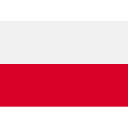After the defeat of the Insurrection, Tadeusz Kosciuszko was in Russian captivity. After taking an oath of allegiance to Tsar Pavel I Romanov, he was released after two years. About 20,000 imprisoned Poles were released with him. Kosciuszko’s oath was the price he had to pay for their freedom. He was fully aware of this. The former Supreme Commander also had to swear that he would not return to the bosom of the Fatherland. So he had to choose forced emigration. A popular destination was France. However, together with his poet friend Julian Ursyn Niemcewicz, he went to America via Finland and England. In 1797, after several months, he returned to Europe, settling in Paris and then in Switzerland. From 1807 to 1814 he lived at Château de Berville near La Genevraye with Peter Josef Zeltner.
In France, Napoleon Bonaparte came to power after the end of the Jacobin Revolution. Some Poles began to associate with him the hope of regaining their homeland. Among them was General Jan Henryk Dabrowski, who was one of the main commanders during the Kosciuszko Uprising. Among other things, he commanded the Corps at the head of which he instigated an uprising in Greater Poland and then captured Bydgoszcz. After Kosciuszko’s defeat at Maciejowice, he was forced to leave Kuyavia and return to rescue the Chief. After the fall of the Uprising, despite offers to join the service of both the Tsarist and Prussian armies, he preferred to leave for Paris, so that there, together with Jozef Wybicki, he opted for the formation of the Polish Legions under the French army. However, the laws of the time forbade the presence of foreign troops on French territory. Hence, after kindly accepting the Polish proposal, the two were directed to Italy. On January 9, 1797, not without problems and initial reluctance on the part of the future emperor, a treaty was signed in Milan with the Lombard government establishing the Legions.
In 1799 the paths of Napoleon Bonaparte and Tadeusz Kosciuszko crossed. The Pole met with the Frenchman that year twice: on October 17 and November 6. After these meetings Kosciuszko gained distance from his interlocutor. He did not trust him and sensed that the latter was approaching the Polish cause instrumentally.
In 1806 French troops entered Polish lands, and Napoleon, who was then in full power, offered the Poles to build their own statehood. He also encouraged Kosciuszko, who was still in Switzerland, to support his alleged actions aimed at the Poles. Kosciuszko, however, still distrusted Napoleon, believing that his countrymen must fight for their country on their own and not rely on others. He still had fresh in his mind the massacre that occurred in Haiti, where the freedom-fighting Poles had to suppress the freedom-fighting Haitians, embezzling from their ideals. However, he addressed a letter to Napoleon in which he included several conditions on which he could support the great Frenchman.
]In a letter dated January 22, 1807, he demanded guarantees for the introduction of a parliamentary monarchy system in Poland, the abolition of peasant serfdom and the restoration of the borders from before the first partition.
As a curiosity, it is worth mentioning that in order to alienate Napoleon from the figure of Tadeusz Kosciuszko, Minister of Police Fouche played a major role. After receiving the letter and the police minister’s report, Napoleon ordered to break off further talks. In a Letter to Fouche he wrote: “I do not attach any importance to Kosciuszko. He does not use at all such reverence in the country as he imagines.” […] Tell him that he is a fool!”.
Eventually, when the Duchy of Warsaw was established, Kosciuszko watched from abroad. His compatriots accused him of succumbing to the influence of Russian propaganda.
Author: Krzysztof Drozdowski



